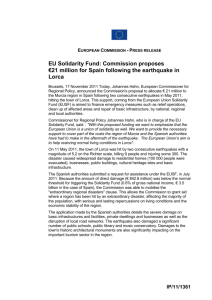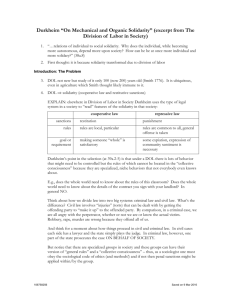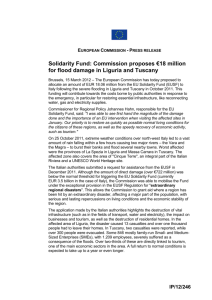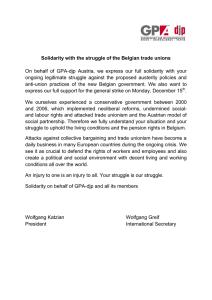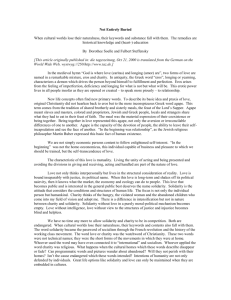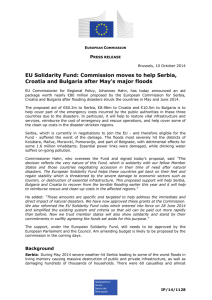Pilot-with-Naz-Farm-7-30
advertisement
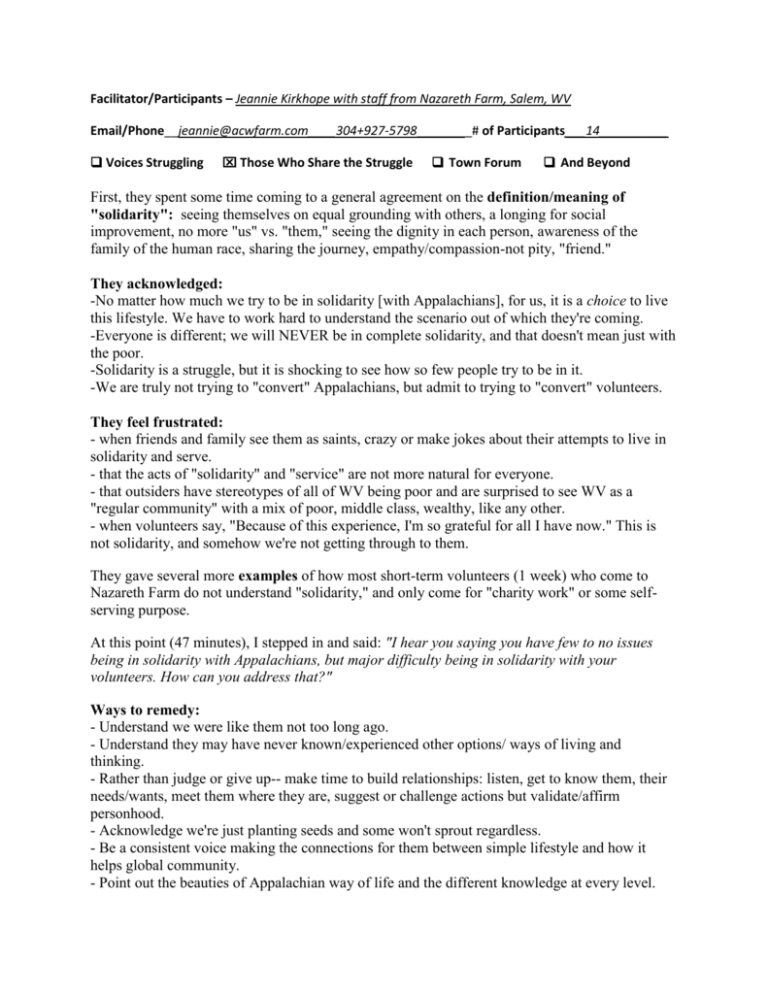
Facilitator/Participants – Jeannie Kirkhope with staff from Nazareth Farm, Salem, WV Email/Phone__jeannie@acwfarm.com____304+927-5798________# of Participants___14__________ Voices Struggling Those Who Share the Struggle Town Forum And Beyond First, they spent some time coming to a general agreement on the definition/meaning of "solidarity": seeing themselves on equal grounding with others, a longing for social improvement, no more "us" vs. "them," seeing the dignity in each person, awareness of the family of the human race, sharing the journey, empathy/compassion-not pity, "friend." They acknowledged: -No matter how much we try to be in solidarity [with Appalachians], for us, it is a choice to live this lifestyle. We have to work hard to understand the scenario out of which they're coming. -Everyone is different; we will NEVER be in complete solidarity, and that doesn't mean just with the poor. -Solidarity is a struggle, but it is shocking to see how so few people try to be in it. -We are truly not trying to "convert" Appalachians, but admit to trying to "convert" volunteers. They feel frustrated: - when friends and family see them as saints, crazy or make jokes about their attempts to live in solidarity and serve. - that the acts of "solidarity" and "service" are not more natural for everyone. - that outsiders have stereotypes of all of WV being poor and are surprised to see WV as a "regular community" with a mix of poor, middle class, wealthy, like any other. - when volunteers say, "Because of this experience, I'm so grateful for all I have now." This is not solidarity, and somehow we're not getting through to them. They gave several more examples of how most short-term volunteers (1 week) who come to Nazareth Farm do not understand "solidarity," and only come for "charity work" or some selfserving purpose. At this point (47 minutes), I stepped in and said: "I hear you saying you have few to no issues being in solidarity with Appalachians, but major difficulty being in solidarity with your volunteers. How can you address that?" Ways to remedy: - Understand we were like them not too long ago. - Understand they may have never known/experienced other options/ ways of living and thinking. - Rather than judge or give up-- make time to build relationships: listen, get to know them, their needs/wants, meet them where they are, suggest or challenge actions but validate/affirm personhood. - Acknowledge we're just planting seeds and some won't sprout regardless. - Be a consistent voice making the connections for them between simple lifestyle and how it helps global community. - Point out the beauties of Appalachian way of life and the different knowledge at every level. - When volunteers express appreciation for what they've learned, encourage them to continue this at home. - Have conversations with chaperones before their arrival. Being aware of whether or not leaders are on the same page will assist us in relating with students. - Be grateful for those who "get it" whether it's because they've been given the chance, we push them, or they take the initiative themselves. - Be hyper-aware of when and in what ways WE are not being in solidarity with Appalachians, because it only perpetuates it in our volunteers - PRAY that we can be vigilant and see a lack of solidarity in ourselves, and PRAY for opportunities for shared experiences, shared meals, shared prayer.



